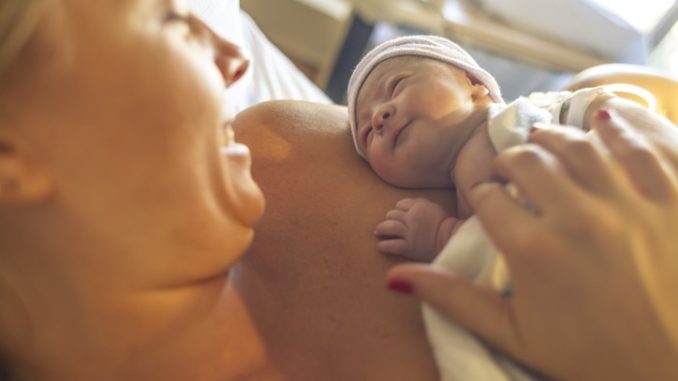
Most women who gave birth in February 2019 had confidence and trust in staff, felt they were ‘always’ listened to by midwives and received appropriate advice at the start of labour, according to a national survey by the Care Quality Commission (CQC)
This is an edited version of an article first published by the CQC.
However, the results also reveal that continuity of carer, access to midwives after giving birth and perinatal mental health are areas where improvements are needed to ensure that maternity services provide a consistently high-quality experience for all.
Published Tuesday 28 January, the findings of CQC’s 2019 maternity survey highlight women’s views on all aspects of their maternity care from the first time they saw a clinician or midwife, during labour and birth, through to the care provided at home in the weeks following the arrival of their baby.
The most positive results from the survey relate to women’s experience of interacting and communicating with staff in maternity services, particularly during labour and birth. This year there has also been important improvement across a greater number of questions compared to 2018 (the last time the survey was carried out) and positive upward trends are evident over time in areas such as feeding choices and partner involvement.
Despite this progress, the results indicate a poorer experience for many women postnatally compared to other stages. This has been the case in previous years. They also show that outside of the labour ward or birthing centre, a significant proportion of women felt they did not have access to the support that they needed and that the quality of information provided about mental health could be improved.
Responses to the 2019 survey include the following notable trends:
Most women (83%) said that during their antenatal check-ups the midwives they saw ‘always’ listened to them (up from 82% in 2018, and from 79% in 2013).
88% of women surveyed felt they were given appropriate advice at the start of labour, compared to 86% who said this in 2018; and 84% said any concerns they raised during labour and birth were taken seriously by staff, up from 82% in 2018.
The majority of women surveyed (84%) said they ‘definitely’ had confidence and trust in the staff caring for them during labour and birth (78% in 2013) and while in hospital after giving birth, 76% were ‘always’ treated with kindness and understanding (65% in 2013).
In 2019, 85% of women said that their decisions about how they wanted to feed their baby were ‘always’ respected by midwives, an increase from 80% in 2013; and over two thirds (69%) said they were ‘always’ given active support and encouragement about feeding their baby, up from 61% in 2013.
Fewer women reported being left alone while during the later stages of labour at a time when they were worried (8% in 2018 falling to 6% in 2019).
More women in the 2019 survey (74%) said their partner or someone else close to them could stay with them as much as they wanted during their stay in hospital (71% in 2018 and 63% in 2015).
However, more than half of women (54%) said that none of the midwives involved in their postnatal care had been involved in either their antenatal care or their labour and only 28% of women said they saw the same midwife every time during their postnatal care.
Less than two thirds (62%) of women said they were always able to get a member of staff to help them when they needed attention in hospital after the birth and a quarter of women said they would have liked to see a midwife more often after going home.
In 2019, 63% of women said they ‘definitely’ were given information about any changes they might experience to their mental health after having their baby, but a quarter (25%) said they only received this information ‘to some extent’ and 12% did not receive it at all.
Although most women responding to the survey (80%) were told who to go to for advice about any changes to their mental health after giving birth, one in five respondents (20%) were not.
Commenting on the survey, Nigel Acheson, CQC’s deputy chief inspector of hospitals and lead for maternity, said:
“The positive feedback from many women completing this survey is a reflection of the hard work and commitment shown by staff working in hospital maternity services across the country.
“However, it is disappointing that postnatally experiences continue to fall short, particularly in regard to women’s mental health needs. While most women surveyed were being asked about their mental wellbeing, a significant proportion felt the quality of information they received could be improved.
“It is absolutely right that the provision of specialist mental health services for pregnant women and new mothers has been recognised as a priority in the NHS long term plan and we hope to see the impact of this extended support in next year’s survey results.
“It is essential that trusts make full use of their individual survey results to identify where changes can be made to ensure consistent and high-quality care for the benefit of all women and their families.
This is the seventh survey of its kind that CQC has carried out to help trusts better understand the experiences of women using maternity services and involved 126 NHS trusts. The results are used by CQC as part of its wider monitoring of hospital services.
Don’t forget to follow us on Twitter, or connect with us on LinkedIn!

Be the first to comment